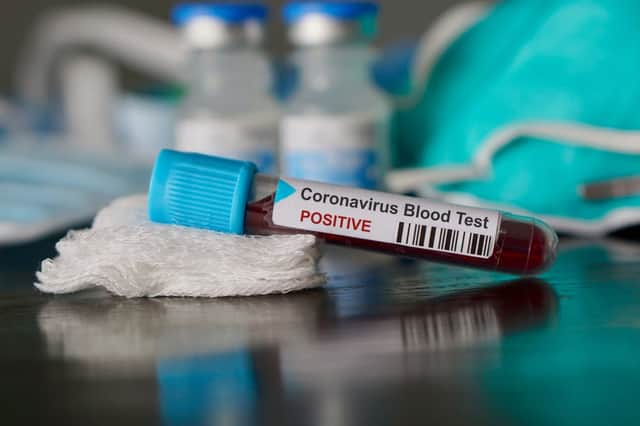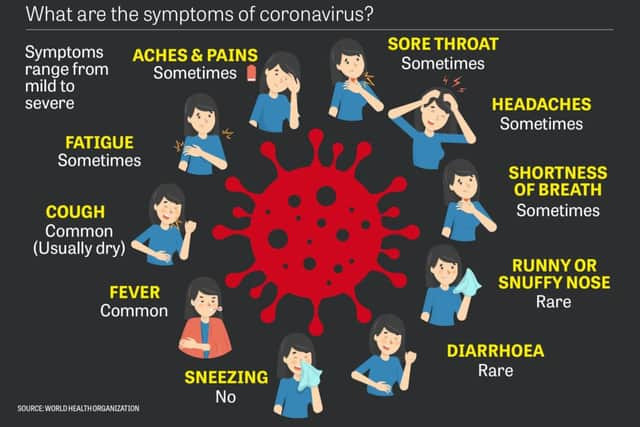Everything you need to know about the UK coronavirus test kits under evaluation - and when they could be available


The UK's chief medical officer Professor Chris Whitty said during the government’s daily coronavirus press briefing on 25 March that there was a "global bottle neck" on buying more testing kits.
Speaking at a press conference, he said it was the Government's aim to be able to buy tests that would allow NHS workers to go back to work if they test negative for coronavirus.
Advertisement
Hide AdAdvertisement
Hide AdAt the moment, to test for coronavirus a swab is taken and the results are run through a machine in a lab to test for the virus’s genetic material.


However, scientists are now working towards a quicker, more efficient testing method that could be done at home.
Here’s what you need to know about the test kits being developed - and who may be able to access it.
How would a coronavirus test work?
The new test being developed would check to see if a person has detectable antibodies in their blood, which would mean that they have been exposed to the virus.
Advertisement
Hide AdAdvertisement
Hide AdThe kit itself would look similar to a pregnancy test and would work by taking a drop of blood from a prick on your fingertip, which is then analysed for antibodies.
It would be able to detect the presence of IGM, an antibody that appears in your body early on in the infection, and IGG, which increases when the body responds to the virus.
It's hoped that the results would be able to be read by anyone, while some might need to be interpreted by a healthcare professional.
How could a test kit help fight coronavirus?
In a previous briefing, Prime Minister Boris Johnson said that these types of tests could be a “game changer” in regards to the ongoing pandemic.
Advertisement
Hide AdAdvertisement
Hide AdSpeaking to the Huffington Post, Professor Trudie Lang, director of the Global Health Network, University of Oxford, said that these types of tests would be “transformational” in the fight against the virus.
She said: “We can make sure we’ve got doctors or nurses who can work safely in hospitals. People wouldn't have to isolate unnecessarily at home for 14 days, because you’ll be able to tell very quickly if people have cleared it or not.”
Currently, only patients who have been admitted to hospital are being routinely tested for the virus.
When could the tests be available?
Today (Wednesday 25 March), Professor Sharon Peacock, director of the national infection service at Public Health England (PHE) told the Science and Technology Committee that 3.5 million of these tests have been purchased, and would be available in the “near future”.
Advertisement
Hide AdAdvertisement
Hide AdBefore the tests are made available, they will first need to be validated in Oxford, to confirm that they are working as expected - this validation should reportedly happen this week.
Once this has happened, they may be made available to test healthcare workers, as well as the general public.
Peacock said: “Several million tests have been purchased for use. These are brand new products.
“We have to be clear they work as they claimed to do.”
When asked if they would be made available in days, rather than weeks or months, Peacock said: “Yes, absolutely.”